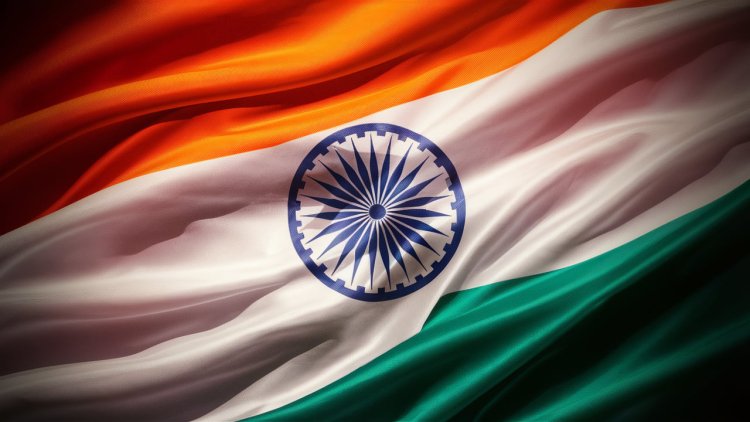A New Chapter in Global Health Governance: India's Emerging Role

The recent endorsement of the WHO Pandemic Agreement marks a pivotal development in the landscape of global health governance. While the finalized version is less ambitious than initially proposed, it introduces vital mechanisms for sharing pathogens and distributing the resulting benefits. This ensures that developing countries gain timely access to treatments derived from shared biological samples. In this evolving framework, India stands out with its expansive pharmaceutical capabilities, strong diplomatic voice within the Global South, and extensive experience in handling public health emergencies. These strengths position India to play a critical leadership role in shaping a more just and collaborative global health order.
Major Global Health Challenges
1. Unequal Access to Healthcare Tools:
One of the most pressing global health issues is the stark disparity in access to vaccines, diagnostics, and medical treatments between wealthy and lower-income nations.
Despite international collaborations, low- and middle-income countries (LMICs) frequently face delays in obtaining critical health products. For example, during the peak of the COVID-19 pandemic, over 80% of vaccine doses were administered in high-income countries, leaving LMICs significantly behind.
2. Antimicrobial Resistance (AMR):
The overuse and improper use of antibiotics have led to a surge in drug-resistant infections. These "superbugs" threaten the effectiveness of common treatments and pose a growing risk to global public health.
If current trends continue, AMR could drive up to 24 million people into extreme poverty by 2030, with at least 700,000 deaths already attributed to drug-resistant infections annually.
3. Rise in Non-Communicable Diseases (NCDs):
Heart disease, diabetes, and other chronic conditions are increasingly prevalent, particularly due to lifestyle choices such as unhealthy diets, tobacco use, and sedentary behavior.
These illnesses are a significant burden on healthcare systems, especially in resource-limited countries. WHO estimates that NCDs account for 71% of deaths globally, with most occurring in LMICs.
4. Health Impacts of Climate Change:
Climate change is now recognized as a major health risk. Rising temperatures, pollution, and extreme weather events contribute to respiratory issues, waterborne diseases, and malnutrition.
By 2050, climate-related health issues—such as malnutrition, malaria, and heat stress—could cause over 250,000 additional deaths annually.
5. Mental Health Challenges:
Mental health has deteriorated significantly in the wake of the COVID-19 pandemic, driven by social isolation, economic stress, and lifestyle changes.
Global anxiety and depression rates surged by 25% in the first year of the pandemic. In India, nearly 15% of adults require mental health care, with urban areas reporting a higher incidence than rural regions.
6. Shortages in Health Workforce:
A global lack of trained medical personnel, especially in rural or low-resource regions, undermines the ability to deliver healthcare effectively.
This is further aggravated by the migration of skilled healthcare workers to wealthier countries. In 2020, the world had 29.1 million nurses and 12.7 million doctors—a figure still insufficient to meet growing demands.
7. Emergence of Infectious Diseases:
New and re-emerging pathogens like Monkeypox, Ebola, and Zika illustrate the world’s vulnerability to infectious disease outbreaks.
Effective surveillance, rapid response, and cross-border cooperation are essential to contain these threats. The 2022 Monkeypox outbreak and Ebola resurgence in 2021 underscore the ongoing need for readiness.
Current Global Health Governance Framework
1. World Health Organization (WHO):
As the central authority for international health, WHO sets norms, coordinates responses to emergencies, and provides technical guidance to countries worldwide.
2. Global Health Security Agenda (GHSA):
GHSA, of which India is a member, aims to strengthen national and global capacity to prevent, detect, and respond to disease threats through a collaborative approach.
3. International Health Regulations (IHR) 2005:
Legally binding under the WHO, IHR seeks to ensure prompt, coordinated international responses to health emergencies by promoting transparency and preparedness.
4. The Global Fund:
Focused on combating AIDS, tuberculosis, and malaria, the Global Fund finances prevention, treatment, and health system strengthening in vulnerable nations.
5. GAVI – The Vaccine Alliance:
A public-private initiative, GAVI strives to improve vaccine access in low-income countries. It works with key partners to ensure that life-saving immunizations reach the world’s most disadvantaged communities.
India’s Strategic Role in Shaping Global Health Governance
1. Championing Pandemic Readiness:
India can take the lead in building resilient global health systems. Through its participation in the G20, SCO, and BRICS, India has advocated for stronger emergency preparedness and more equitable crisis responses.
2. Reforming Global Health Institutions:
India has called for a more inclusive and efficient WHO, pushing for institutional reforms post-COVID-19. Its nine-point proposal emphasizes a transparent, agile, and collaborative health governance framework.
3. Expanding Access to Affordable Medicines:
As the world’s largest producer of vaccines, India plays a critical role in supplying affordable medicines globally.
During the COVID-19 crisis, Indian firms like the Serum Institute became essential suppliers of vaccines to many LMICs, especially through initiatives like COVAX.
4. Blending Traditional and Modern Medical Systems:
India promotes the integration of traditional health practices—like Ayurveda and Yoga—with modern medicine. This holistic approach supports the global “One Health” vision, which links human, animal, and environmental well-being.
5. Leading in Digital Health Innovation:
India’s digital platforms, such as the Ayushman Bharat Digital Mission and CoWIN, demonstrate how technology can transform healthcare delivery.
By offering these tools as public goods, India is helping other nations modernize their health infrastructure.
6. Strengthening South-South Health Partnerships:
India’s proactive outreach through initiatives like Vaccine Maitri highlights its leadership in supporting fellow Global South nations.
By providing vaccines and medical aid to countries across Africa, Latin America, and Asia, India reinforces solidarity and promotes equitable health outcomes.
Conclusion
The world faces a wide spectrum of health challenges—from inequities in vaccine access to the rise of climate-linked health issues. Yet, these challenges also offer opportunities for transformation.
India, with its powerful pharmaceutical industry, rich heritage of traditional medicine, and innovations in digital health, is uniquely equipped to help lead this transformation. As global health governance evolves, India can emerge not just as a contributor—but as a partner, ally, and architect of a more inclusive and resilient health future.














